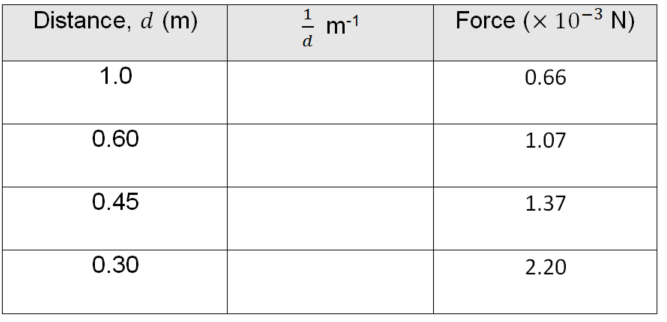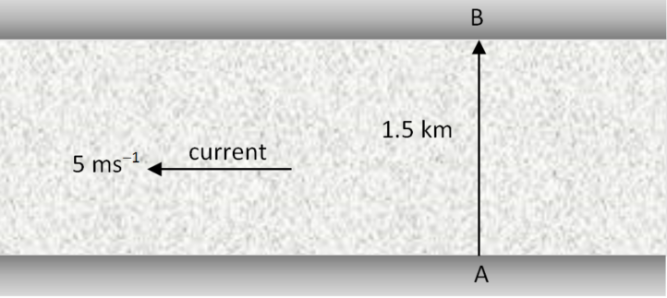If somebody charged you $50 for a cup of espresso, you’ll realise one thing was flawed. If throughout a physics experiment you had been holding a small piece of metallic in your hand and it was labelled “50,” you’ll realise it most likely meant 50 grams, not 50 kilograms.
In each instances, you’ll usually have a way of what the reply must be upfront – due to your instinct.
Your instinct would inform you {that a} espresso prices a couple of {dollars}, not $50, and that small items of metallic which you’ll be able to maintain in a single hand, usually tend to weigh 50 g than 50 kg. However how far does your instinct lengthen to the topics you’re finding out and the questions you’re more likely to get in exams? If you happen to develop a robust sense of instinct, you’ll achieve an thought of whether or not a solution feels proper – and if it doesn’t, it could possibly set off you to verify your working for any errors.
Growing Instinct
So how would you develop such a way of instinct?
1. Instinct comes from expertise, so practising a spread of questions is vital.
2. Take into consideration whether or not the state of affairs within the query is a practical one. Your reply ought to make sense given the context of the query.
3. Is your reply believable? Is there a easy qualitative comparability you may make? Is it greater than one thing or lower than one thing? If there’s a signal or route, does it make sense?
4. Take into consideration the scale of items of various bodily portions. For on a regular basis conditions, 1 second is a comparatively quick time, 1 tesla is a robust magnetic subject, and 1 coulomb is a ridiculous quantity of cost (if it had been remoted). Being conversant in the scale of items will result in an instinct about whether or not the reply must be an enormous quantity or a small quantity.
The place Instinct Ought to Detect a Mistake
In a graph query from 12 months 12 Physics Module 6 – Electromagnetism – college students are given the information within the desk beneath in regards to the power between two current-carrying conductors. They’re requested to finish a graph, discover the gradient of the road of finest match and use it to calculate the permeability of free area μ0. College students ought to know that μ0 = 4π x 10-7 NA-2 = 1.26 x 10-6, so ought to anticipate a solution near that.

The power values within the desk are given in items of x 10-3 N, not N. If college students use the numbers given within the desk and neglect to account for this, their reply will likely be off by an element of 1000 i.e. they’ll get a solution near 1.26 x 10-3 fairly than 1.26 x 10-6. For graph questions like this, instinct ought to inform you that being out from the anticipated worth by 10-20% is cheap, however being out by 1000 instances shouldn’t be, and it must be a set off you to verify your working.
A second instance is from Y11 Physics Module 1 – Kinematics – the place college students are requested to work out how lengthy it takes a ship to cross a 1.5 km large river, given the boat can journey at 30 km/h, however the river flows at 5 ms-1. The boat should cross from A to B and isn’t allowed to float downstream.
 |
This query has inconsistent items (km/h and m/s). The best method to reply the query is in km and hours, however many college students could be used to solutions being in seconds. One attainable mixture of errors can result in a solution of 0.05 seconds. Does that reply make sense within the context of the query? No – whatever the particulars, instinct ought to inform you that you simply can not journey a distance of 1.5 km in a fraction of a second for those who’re travelling at 30 km/h. The right reply is 0.06 hours (about 3 or 4 minutes), which appears cheap.
Instinct in Non-intuitive Conditions
We are inclined to have instinct about on a regular basis conditions from our on a regular basis experiences, however what about conditions we don’t expertise? In Y12 Physics, relativity applies to very quick objects, and quantum physics to very small objects. We don’t have direct expertise with such conditions, which might result in counter-intuitive outcomes, like time dilation and quantisation. Nonetheless, you possibly can nonetheless develop a way of instinct in these instances by way of publicity to the ideas. For instance, the velocity must be similar to the velocity of sunshine for relativistic results to be noticeable, and the consequences will likely be stronger at increased speeds. By means of observe, you possibly can be taught to think about whether or not a solution is smart.
You’ll be able to see from the above examples {that a} sense of instinct about what the reply must be, or what it shouldn’t be, may also help reveal a mistake you might need made. This instinct ought to take note of information in regards to the dimension of items and the context of the query, and may be developed by way of observe. In case your reply feels flawed, you need to verify it, and your instinct could prevent from some foolish errors.
Are Your Prepared for the HSC?
If you happen to’re struggling together with your Physics marks now, you’d higher get on prime of it earlier than you run out of time. However don’t fear, Matrix is right here to assist!
